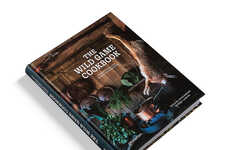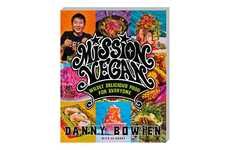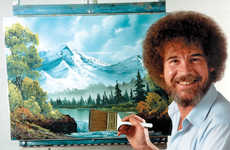
'Cannibalism: A Perfectly Natural History' Discusses the Diet in Nature
Joey Haar — February 10, 2017 — Pop Culture
Though species eating other members of the same species often brings about a literally visceral dread (a dread consistently exploited in things like zombie movies,) 'Cannibalism: A Perfectly Natural History' looks to clear away some of the stigma surrounding the practice. The non-fiction nature book looks at examples of cannibalism in all sorts of fauna — humans included — to help people better understand the role it can play in the process of survival and evolution.
Cannibalism: A Perfectly Natural History's author, Bill Schutt, is a zoologist, so he's a reliable authority on the topic. However, his scientific background doesn't detract from his wry humor. Recognizing the repulsion that comes with the topic, Schutt deftly combines facts and literary style to get readers comfortable with the potentially grisly information.
Cannibalism: A Perfectly Natural History's author, Bill Schutt, is a zoologist, so he's a reliable authority on the topic. However, his scientific background doesn't detract from his wry humor. Recognizing the repulsion that comes with the topic, Schutt deftly combines facts and literary style to get readers comfortable with the potentially grisly information.
Trend Themes
1. Cannibalism in Nature - Exploring the role of cannibalism in the process of survival and evolution can reveal new insights and potential adaptations for various species.
2. Removing Stigma of Cannibalism - Addressing the taboo and providing scientific understanding can help people overcome the repulsion associated with cannibalism.
3. Humor in Science Writing - Using wry humor alongside facts and literary style can engage readers and make potentially dark or gruesome subjects more approachable.
Industry Implications
1. Zoology - Zoologists can study the natural history of cannibalism to gain a deeper understanding of how and why it occurs.
2. Nature Publishing - Publishers and authors can explore the niche market of non-fiction nature books that delve into fascinating and often misunderstood aspects of the natural world.
3. Science Communication - Science writers and communicators can employ creative approaches, such as combining humor with facts, to engage and educate readers about complex or controversial topics.
0.7
Score
Popularity
Activity
Freshness























